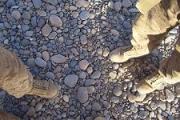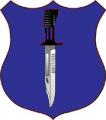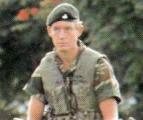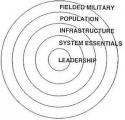
Originally Posted by
Steve the Planner

120 mm. Congrats on the assignment. My Mom, who was a computer programmer, always taught me that life is problems and the fun is solving them. I'm sure you will have plenty of the kind of fun that our acquired tastes will enjoy.
I'm still scratching my head about all this ethnographic mapping stuff.
Prior to the demise of the old foreign service (1960's), each embassy had a mapping attache whose job it was to scurry around and collect maps, census, ethnic stuff and send it home---to a State geography department that knew what to do with it. Compile it for future reference in the event it was needed (war? foreign assistance program design? trade negotiation?).
In Iraq, the embassy was blind (and the other two monkeys). It knew less about the country and its people than most geographers in the US could pick up from a night of internet searching.
Now, State's excellent geography office is limited only to monitoring international boundaries, and couldn't tell you where or how many districts exist in Kirkuk even six years into a war where Kirkuk remains a big issue. There is nobody there at State studying this stuff in Iraq or any other country. US AID's contractors can't help you either. NGA has great physical and terrain mapping, but can't tell anyone how many people are in any area (basic census data), let alone fine-grained stuff about those people.
I spent a lot of time last year trying to get the mil system to integrate basic demographic and property tracking data from civilian sources (Min of Planning/CoSIT), and Land Records---the stuff we all use in the civilian world in the States was all available in Iraq)---but could never find anyone interested. Note: I have the complete Iraqi census records (including all the tribal and ethnic data (by nahia) dating to the 1930s sitting on my civilian hard-drive and nobody ever asked for it (One day, I'll get around to assembling and publishing it, but now, I only look at it for spot references).
But without the basic knowledge of a country and it's people on the front end (before war), how can the US expect to establish credible foreign policy (of which war is only a piece).
While it is true that the military needs it NOW, and nobody else has it unless HTS brings it to them, the reality is that HTS is a short-term fix, as others have said, and much that it does will have limited effect and will disappear soon as the game stops.
How do we create a fix that will allow national and sub-national ethnographic, civilian economic and infrastructure, and political administrative tracking and reporting in a manner that folks can no it pre-emptively, rather than something 120mm has to try to track down in the field after it is needed and the bullets are flying?
Steve













 .
. !
!

Bookmarks